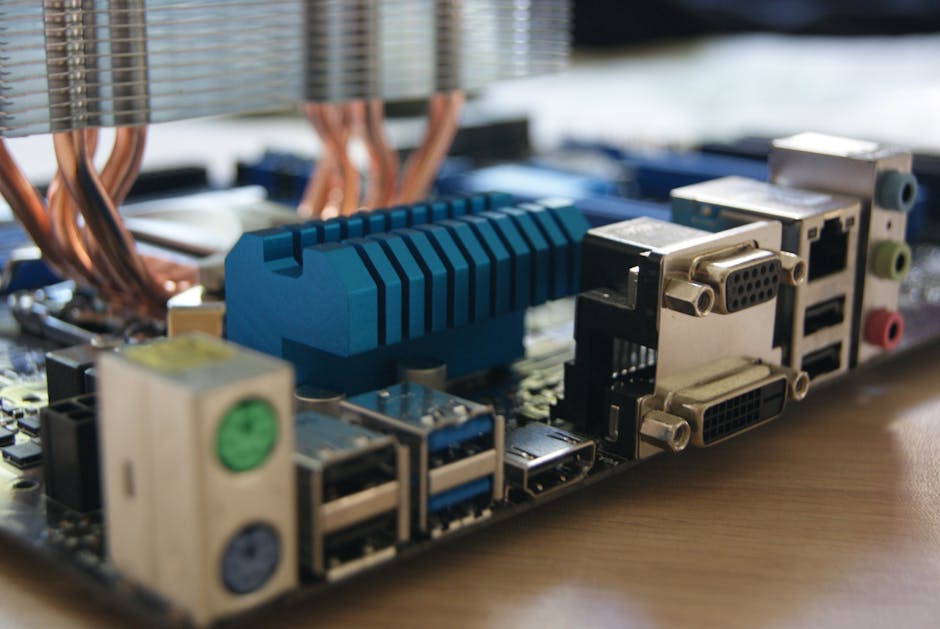Beware of spoilers! Early copies of Assassin's Creed Shadows have been leaked weeks before its release - Related to steam, activision, been, call, $15,000
Activision admits to using AI assets in Call of Duty following Steam policy change

A hot potato: Activision has admitted what most people have suspected for years: it is using some AI-generated content in Call of Duty. It doesn't come as too much of a surprise given the evidence, which includes an image of a zombie Santa Claus in a loading screen with six fingers. It's a contentious issue, especially as Activision Blizzard laid off 1,900 employees in 2023.
indicates that Activision was using AI began gaining popularity around the time of Modern Warfare 3. Wired reported last year that the enterprise had started using AI tools in its game development in 2023, a year when approximately 11,250 people working in the industry were laid off.
The analysis states that Activision approved the use of certain generative AI tools in creating concept art and marketing materials in mid-2023, and by the end of the year, Activision released an AI-generated cosmetic, the $15 Yokai's Wrath bundle, on the Call of Duty: Modern Warfare 3 store.
What was probably Activision's most obvious use of AI appeared in a holiday-themed loading screen that showed a zombie Santa with six fingers – one of the signs that an image was generated using artificial intelligence tools. There was also a multi-digit hand used to promote Zombies Gobblegum, while the Hard Breakup calling card elements an image of a woman with hair and buckles that look a lot like AI-generated assets.
Activision neither confirmed nor denied the accusations, but in January 2025, Steam revealed a new policy stating that developers must disclose any use of AI within their games.
Presumably as a result of Valve's policy, Activision now includes a disclaimer on the Call of Duty: Black Ops 6's Steam page that states, "Our team uses generative AI tools to help develop some in-game assets." Interestingly, there is no such disclosure on the Modern Warfare 3 page, at least not yet.
The disclaimer seems deliberately vague as game assets could refer to a lot of things, including cosmetics.
While gamers aren't happy about the admission, there seem to be some areas where Activision is using AI that have been deemed acceptable. One of these is to identify Call of Duty cheaters, another is the chat moderation system, which saw a 43% drop in toxicity following its implementation.
Once upon a time, you could assume you were pretty safe on the internet, so long as you were careful. But that’s changed. Through no fault of your own......
Lawyer faces $15,000 fine for using fake AI-generated cases in court filing

Facepalm: Another instance of an attorney using generative AI to file briefs containing non-existent cases has led to a judge recommending a $15,000 fine for his actions. That's more than three times what two lawyers and their law firm were fined in 2023 for doing the same thing.
When representing HooserVac LLC in a lawsuit over its retirement fund in October 2024, Indiana attorney Rafael Ramirez included case citations in three separate briefs. The court could not locate these cases as they had been fabricated by ChatGPT.
In December, US Magistrate Judge for the Southern District of Indiana Mark J. Dinsmore ordered Ramirez to appear in court and show cause as to why he shouldn't be sanctioned for the errors.
"Transposing numbers in a citation, getting the date wrong, or misspelling a party's name is an error," the judge wrote. "Citing to a case that simply does not exist is something else altogether. Mr Ramirez offers no hint of an explanation for how a case citation made up out of whole cloth ended up in his brief. The most obvious explanation is that Mr Ramirez used an AI-generative tool to aid in drafting his brief and failed to check the citations therein before filing it."
Ramirez admitted that he used generative AI, but insisted he did not realize the cases weren't real as he was unaware that AI could generate fictitious cases and citations. He also confessed to not complying with Federal Rule of Civil Procedure 11. This states that proposes being made must be based on evidence that currently exists, or there is a strong likelihood that evidence will be found to support them through further investigation or discovery. The rule is supposed to encourage attorneys to perform due diligence before filing cases.
Ramirez says he has since taken legal education courses on the use of AI in law, and continues to use AI tools. But the judge expressed his "failure to comply with that most basic of requirements" makes his conduct "particularly sanctionable." Dinsmore added (via Bloomberg Law) that as Ramirez failed to provide competent representation and made several false statements to the court, he was being referred to the chief judge for any further disciplinary action.
Dinsmore has recommended that Ramirez be sanctioned $5,000 for each of the three cases he filed containing the fabricated cases.
This isn't the first case of a lawyer's reliance on AI proving misplaced. In June 2023, two lawyers and their law firm were fined $5,000 by a district judge in Manhattan for citing fake legal research generated by ChatGPT.
In January, lawyers in Wyoming submitted nine cases to support an argument in a lawsuit against Walmart and Jetson Electric Bikes over a fire allegedly caused by a hoverboard. Eight of the cases had been hallucinated by ChatGPT.
Editor's take: Andor, the best Star Wars TV show ever – and one of the best reveals of any genre – is coming back for a second season on April 22, 2025.......
FSP, a global leader in power supply solutions, introduces the MEGA TI PSU series, engineered for game......
512GB is a staggering amount of storage, especially when compared to the “roomy” 40GB hard drive I used to have on my old PC. Today you can pick up a ......
Beware of spoilers! Early copies of Assassin's Creed Shadows have been leaked weeks before its release

Assassin's Creed Shadows has leaked one month ahead of its March release date.
Some players were able to get hold of eary copies that were being sold online.
Ubisoft has called the situation "unfortunate" and says any game footage being spread online doesn't represent the final product.
Assassin's Creed Shadows has leaked one month ahead of its release after some players received physical copies early.
Earlier this week, it was reported (via VGC) that the upcoming Assassin's Creed title was already out in the wild after fans discovered some players were streaming the game and leaking certain elements online.
A Reddit post currently doing the rounds aspects screenshots of someone who was able to buy a physical PS5 copy of the game. They also offered proof of the game being downloaded on their system as well as several photos of them playing as one of the two playable protagonists, Naoe, alongside their current loadout and level.
The version the leaker owns is apparently "a much older build with none of the improvements added in from the delays".
It's not exactly clear how many copies were leaked, but it's claimed that some players were able to purchase copies online from third-party data. One user in the same Reddit thread was able to provide a screenshot of a Facebook Marketplace listing, offering PS5 copies of the game for $100.
Ubisoft has since responded to the leaks and expressed that any footage shared online is not representative of the final product.
"We are aware players have accessed Assassin's Creed Shadows ahead of its official release," Ubisoft noted in a statement on X / Twitter. "The development team is still working on patches to prepare the experience for launch and any footage shared online does not represent the final quality of the game.
"Leaks are unfortunate and can diminish the excitement for players. We kindly ask you not to spoil the experience for others. Thank you to our community for already taking steps to protect everyone from spoilers."
Assassin's Creed Shadows, which was originally supposed to launch on November 12, 2024, was once again delayed from its new February 14, 2025, release date in January.
The game will now launch on March 20, 2025, for PlayStation 5, Xbox Series X, Xbox Series S, and PC.
You can usually spot scam emails through the sender information—not who’s listed in the From field, but what the message actually says. A legitimate e......
512GB is a staggering amount of storage, especially when compared to the “roomy” 40GB hard drive I used to have on my old PC. Today you can pick up a ......
Market Impact Analysis
Market Growth Trend
| 2018 | 2019 | 2020 | 2021 | 2022 | 2023 | 2024 |
|---|---|---|---|---|---|---|
| 4.9% | 5.9% | 6.2% | 6.9% | 7.3% | 7.5% | 7.6% |
Quarterly Growth Rate
| Q1 2024 | Q2 2024 | Q3 2024 | Q4 2024 |
|---|---|---|---|
| 6.9% | 7.2% | 7.4% | 7.6% |
Market Segments and Growth Drivers
| Segment | Market Share | Growth Rate |
|---|---|---|
| Semiconductors | 35% | 9.3% |
| Consumer Electronics | 29% | 6.2% |
| Enterprise Hardware | 22% | 5.8% |
| Networking Equipment | 9% | 7.9% |
| Other Hardware | 5% | 5.3% |
Technology Maturity Curve
Different technologies within the ecosystem are at varying stages of maturity:
Competitive Landscape Analysis
| Company | Market Share |
|---|---|
| Apple | 18.7% |
| Samsung | 16.4% |
| Intel | 12.9% |
| NVIDIA | 9.8% |
| AMD | 7.3% |
Future Outlook and Predictions
The Using Activision Admits landscape is evolving rapidly, driven by technological advancements, changing threat vectors, and shifting business requirements. Based on current trends and expert analyses, we can anticipate several significant developments across different time horizons:
Year-by-Year Technology Evolution
Based on current trajectory and expert analyses, we can project the following development timeline:
Technology Maturity Curve
Different technologies within the ecosystem are at varying stages of maturity, influencing adoption timelines and investment priorities:
Innovation Trigger
- Generative AI for specialized domains
- Blockchain for supply chain verification
Peak of Inflated Expectations
- Digital twins for business processes
- Quantum-resistant cryptography
Trough of Disillusionment
- Consumer AR/VR applications
- General-purpose blockchain
Slope of Enlightenment
- AI-driven analytics
- Edge computing
Plateau of Productivity
- Cloud infrastructure
- Mobile applications
Technology Evolution Timeline
- Technology adoption accelerating across industries
- digital transformation initiatives becoming mainstream
- Significant transformation of business processes through advanced technologies
- new digital business models emerging
- Fundamental shifts in how technology integrates with business and society
- emergence of new technology paradigms
Expert Perspectives
Leading experts in the hardware tech sector provide diverse perspectives on how the landscape will evolve over the coming years:
"Technology transformation will continue to accelerate, creating both challenges and opportunities."
— Industry Expert
"Organizations must balance innovation with practical implementation to achieve meaningful results."
— Technology Analyst
"The most successful adopters will focus on business outcomes rather than technology for its own sake."
— Research Director
Areas of Expert Consensus
- Acceleration of Innovation: The pace of technological evolution will continue to increase
- Practical Integration: Focus will shift from proof-of-concept to operational deployment
- Human-Technology Partnership: Most effective implementations will optimize human-machine collaboration
- Regulatory Influence: Regulatory frameworks will increasingly shape technology development
Short-Term Outlook (1-2 Years)
In the immediate future, organizations will focus on implementing and optimizing currently available technologies to address pressing hardware tech challenges:
- Technology adoption accelerating across industries
- digital transformation initiatives becoming mainstream
These developments will be characterized by incremental improvements to existing frameworks rather than revolutionary changes, with emphasis on practical deployment and measurable outcomes.
Mid-Term Outlook (3-5 Years)
As technologies mature and organizations adapt, more substantial transformations will emerge in how security is approached and implemented:
- Significant transformation of business processes through advanced technologies
- new digital business models emerging
This period will see significant changes in security architecture and operational models, with increasing automation and integration between previously siloed security functions. Organizations will shift from reactive to proactive security postures.
Long-Term Outlook (5+ Years)
Looking further ahead, more fundamental shifts will reshape how cybersecurity is conceptualized and implemented across digital ecosystems:
- Fundamental shifts in how technology integrates with business and society
- emergence of new technology paradigms
These long-term developments will likely require significant technical breakthroughs, new regulatory frameworks, and evolution in how organizations approach security as a fundamental business function rather than a technical discipline.
Key Risk Factors and Uncertainties
Several critical factors could significantly impact the trajectory of hardware tech evolution:
Organizations should monitor these factors closely and develop contingency strategies to mitigate potential negative impacts on technology implementation timelines.
Alternative Future Scenarios
The evolution of technology can follow different paths depending on various factors including regulatory developments, investment trends, technological breakthroughs, and market adoption. We analyze three potential scenarios:
Optimistic Scenario
Rapid adoption of advanced technologies with significant business impact
Key Drivers: Supportive regulatory environment, significant research breakthroughs, strong market incentives, and rapid user adoption.
Probability: 25-30%
Base Case Scenario
Measured implementation with incremental improvements
Key Drivers: Balanced regulatory approach, steady technological progress, and selective implementation based on clear ROI.
Probability: 50-60%
Conservative Scenario
Technical and organizational barriers limiting effective adoption
Key Drivers: Restrictive regulations, technical limitations, implementation challenges, and risk-averse organizational cultures.
Probability: 15-20%
Scenario Comparison Matrix
| Factor | Optimistic | Base Case | Conservative |
|---|---|---|---|
| Implementation Timeline | Accelerated | Steady | Delayed |
| Market Adoption | Widespread | Selective | Limited |
| Technology Evolution | Rapid | Progressive | Incremental |
| Regulatory Environment | Supportive | Balanced | Restrictive |
| Business Impact | Transformative | Significant | Modest |
Transformational Impact
Technology becoming increasingly embedded in all aspects of business operations. This evolution will necessitate significant changes in organizational structures, talent development, and strategic planning processes.
The convergence of multiple technological trends—including artificial intelligence, quantum computing, and ubiquitous connectivity—will create both unprecedented security challenges and innovative defensive capabilities.
Implementation Challenges
Technical complexity and organizational readiness remain key challenges. Organizations will need to develop comprehensive change management strategies to successfully navigate these transitions.
Regulatory uncertainty, particularly around emerging technologies like AI in security applications, will require flexible security architectures that can adapt to evolving compliance requirements.
Key Innovations to Watch
Artificial intelligence, distributed systems, and automation technologies leading innovation. Organizations should monitor these developments closely to maintain competitive advantages and effective security postures.
Strategic investments in research partnerships, technology pilots, and talent development will position forward-thinking organizations to leverage these innovations early in their development cycle.
Technical Glossary
Key technical terms and definitions to help understand the technologies discussed in this article.
Understanding the following technical concepts is essential for grasping the full implications of the security threats and defensive measures discussed in this article. These definitions provide context for both technical and non-technical readers.


